Investing
Every Weapon The US Has Sent Ukraine Since Russia's Invasion
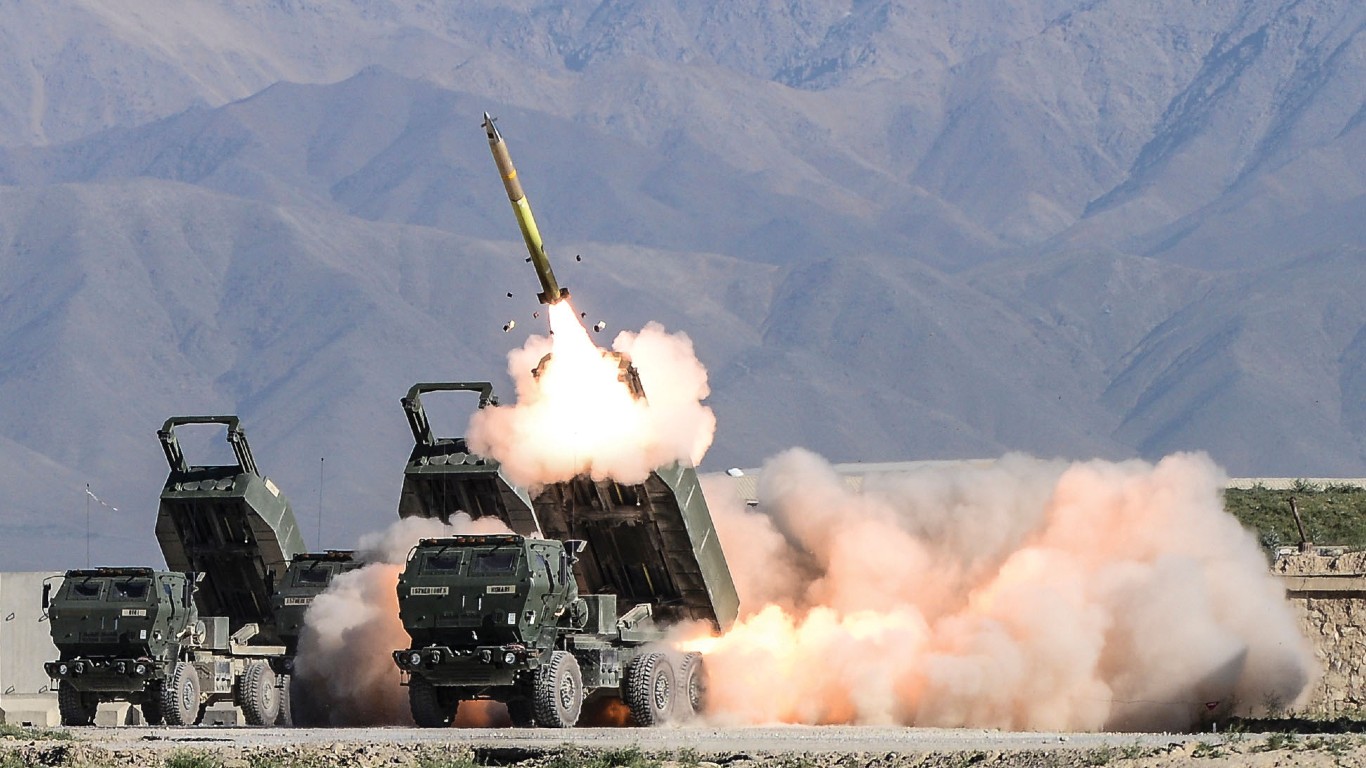
Published:
Last Updated:

Since Russian troops amassed on the border first crossed into Ukraine on February 24, the war has escalated to a large-scale proxy war between Russia and not only Ukraine, but her many western allies. Ukraine has devoted a massive part of its economy to the war effort, increasing military spending a staggering 640% between 2021 and 2022, but most of Ukraine’s weapons have come from abroad. The United States alone has committed to sending just under $50 billion in military aid to the besieged nation. Congress has so far authorized $28.5 billion in economic support, $13.2 billion in humanitarian aid, and $18.4 billion to boost the U.S. defense industry capacity.
Military aid has by far had the largest impact on the war. The weapons, in addition to weapons and aid packages delivered by the U.S. and other nations, have proved instrumental in Ukraine’s defense. (This is how Russia’s and NATO’s military capabilities compare.)
To identify the military equipment sent to Ukraine since the start of the Russian invasion, 24/7 Wall St. reviewed the DOD’s July 25, 2023 Fact Sheet on U.S. Security Assistance to Ukraine. The weapons on this list include those that have already been delivered as well as some the U.S. has committed to supplying at a future date.
Ukraine President Volodymer Zelenskyy has recently met with members of the U.S. Congress as well as President Joe Biden to plead for more funding in the war effort. Biden has pushed Congress for more support.
As the foremost provider of Ukrainian aid, some question whether the U.S. involvement makes this a proxy war. Russian President Vladmir Putin has repeatedly warned against the U.S. making more of a commitment to the fight than just sending arms and aid. Also, should the fighting spill over into any one of the NATO member states that border Ukraine, the U.S. would be obligated to engage militarily, which would result in a confrontation between the world’s two largest nuclear superpowers. (This is the country with the most nuclear weapons.)
As the war crosses the year and a half mark, when, or how it will end is anyone’s guess.
Editor’s note: This article was produced with the assistance of automated technology and then fine-tuned by a member of 24/7 Wall St. editorial team.
Click here to see all of the weapons the US has supplied Ukraine since the invasion.
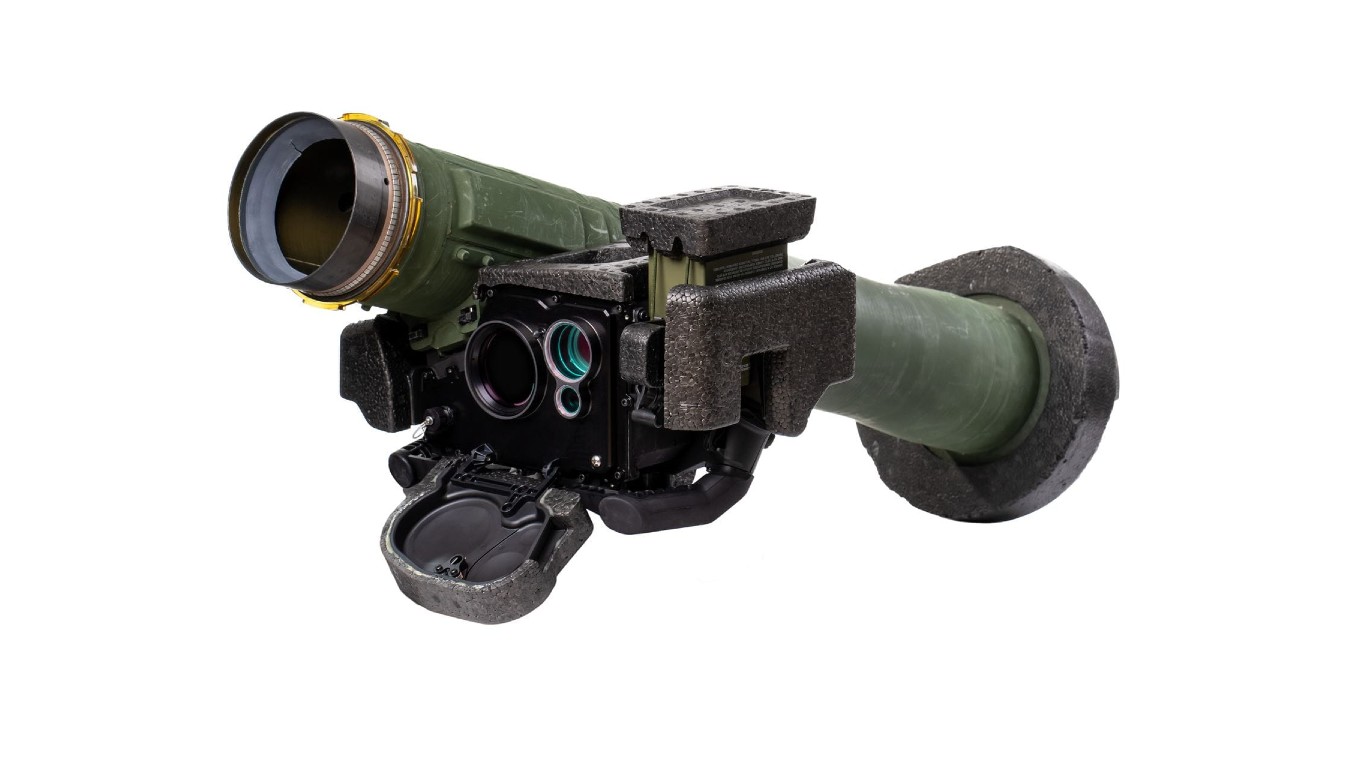
1. Anti-aircraft and anti-armor systems
Amidst the ongoing conflict in Ukraine, the U.S. has provided a vast selection of anti-aircraft armaments. The array of weaponry includes in excess of 2,000 Stinger missile systems. These portable, surface-to-air defense systems can help Ukraine against Russian air attacks. In addition, the U.S. has supplied more than 10,000 Javelin anti-armor systems, along with over 35,000 other types of anti-armor weaponry.
The shoulder-launched Javelin system, which fires self-guided missiles, is designed against armored vehicles, bunkers, and caves. The Javelin missiles have eliminated Russian tanks from combat. A single soldier can transport and operate a Javelin launcher, and its missiles can reach targets up to 1.5 miles away.
[in-text-ad]
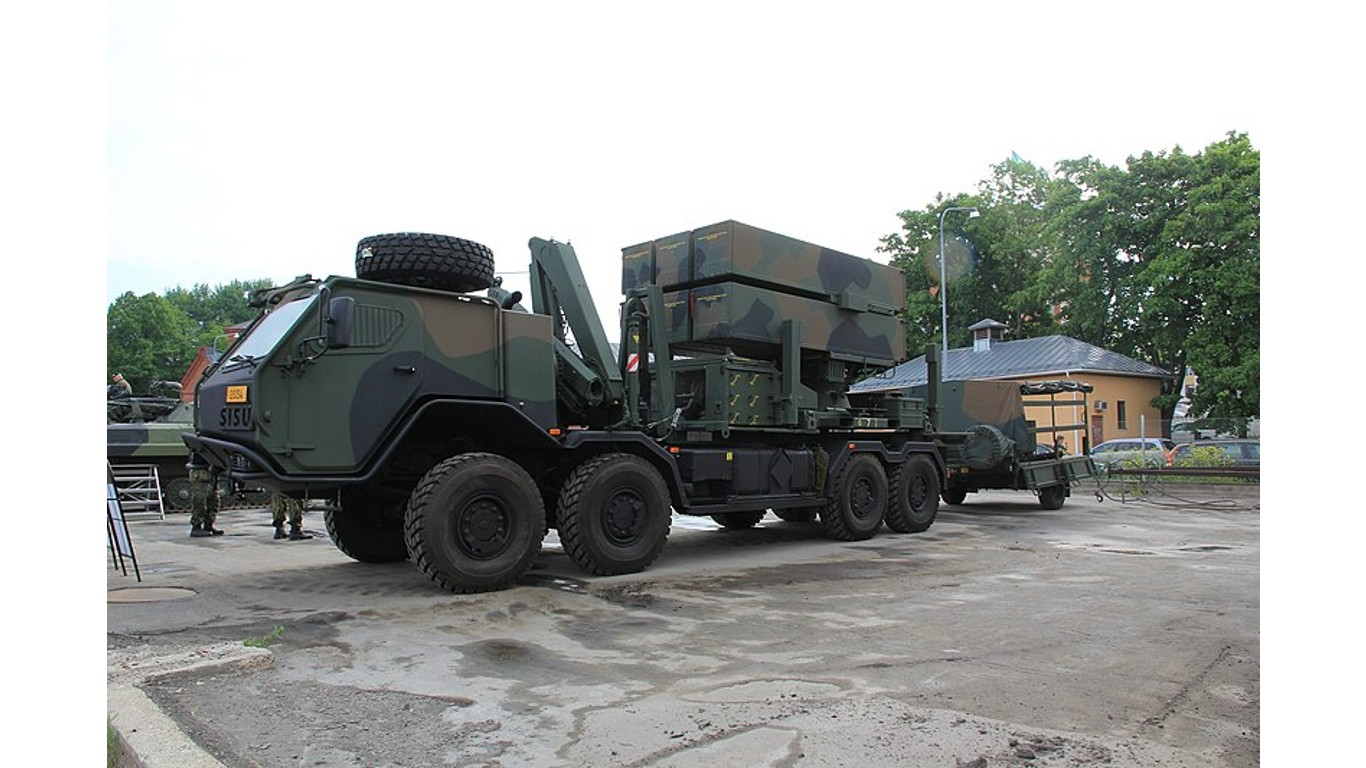
2. Anti-drone systems
The National Advanced Surface-to-Air Missile Systems, otherwise known as NASAMs, are missile defense systems used primarily against threats from the air. These systems are outfitted with cutting-edge Sentinel radar and Advanced Medium Range Surface-to-Air Missiles. A commitment has been made by the U.S. government to supply Ukraine with 12 of these NASAMS. They possess the ability to neutralize airborne vehicles, including drones and incoming cruise missiles. For more than a decade, these systems have been a key component in the air defense strategy of the U.S. National Capital Region.
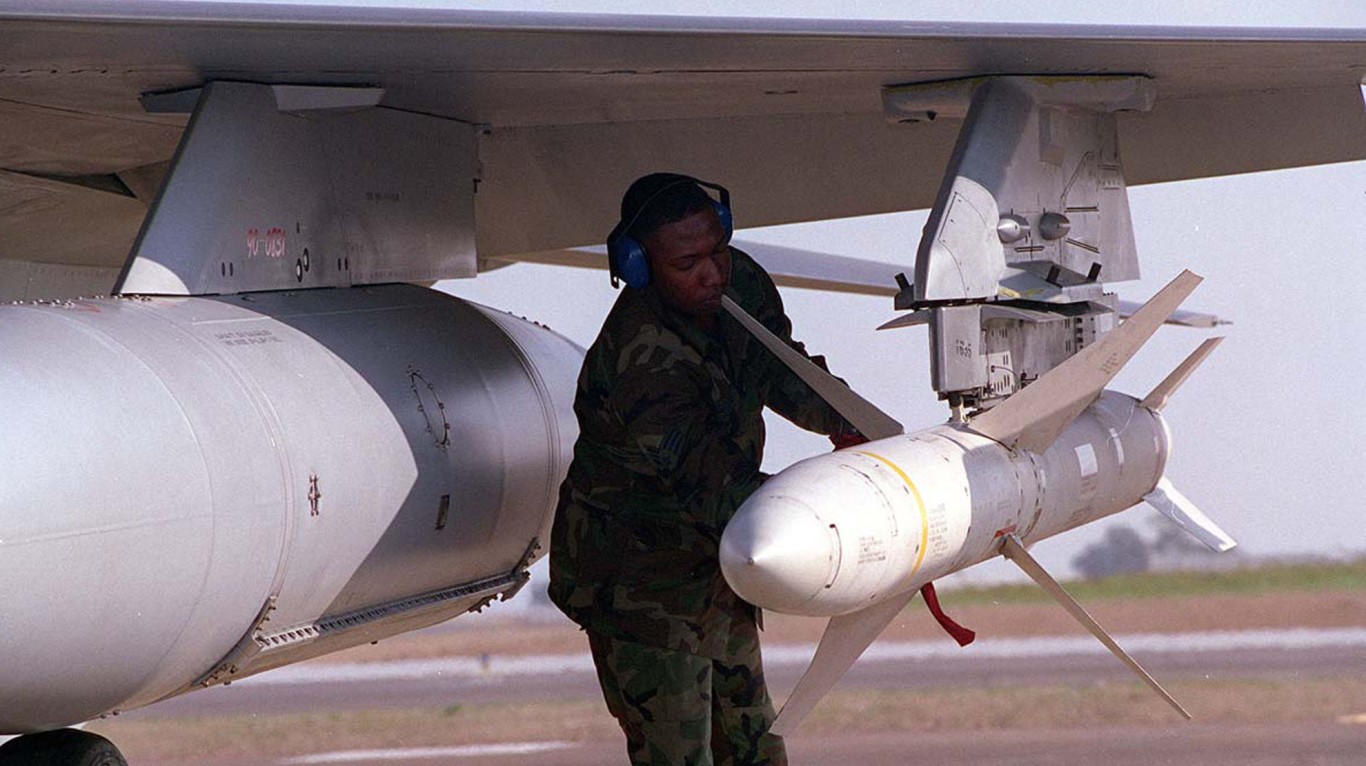
3. Anti-radar missiles
The U.S. government is supplying an unconfirmed quantity of high-velocity anti-radiation missiles, also known as HARMs, to Ukraine. These AGM-88 HARMs are surface-to-air missiles of supersonic speed, engineered specifically to target air defense systems equipped with radar. Raytheon produces these AGM-88 systems, each weighing approximately 800 pounds. The price tag is around $200,000. These missiles, first introduced into service in 1984, are typically employed on F-16 aircraft within the U.S. Air Force.
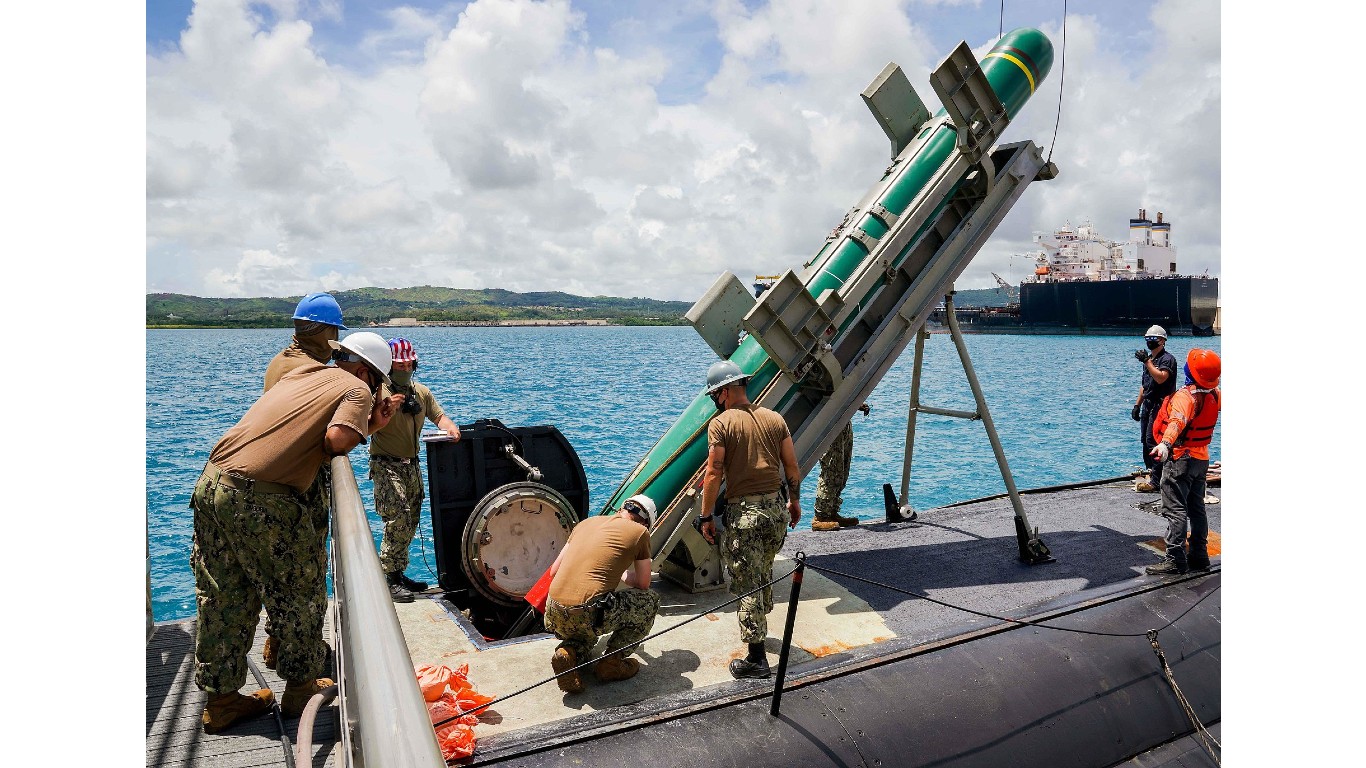
4. Anti-ship missiles
The United States is equipping Ukraine with maritime defense weaponry, notably two Harpoon Coastal Defense Systems. These vehicle-mounted missiles are engineered to neutralize naval vessels. Denmark had previously supplied Ukraine with similar harpoon missiles, used for safeguarding the Black Sea coast. The Department of Defense also authorized the sale of 100 RGM-84L-4 Harpoon Systems to Taiwan in April. The delivery of these systems is anticipated to be completed by 2029.
[in-text-ad-2]
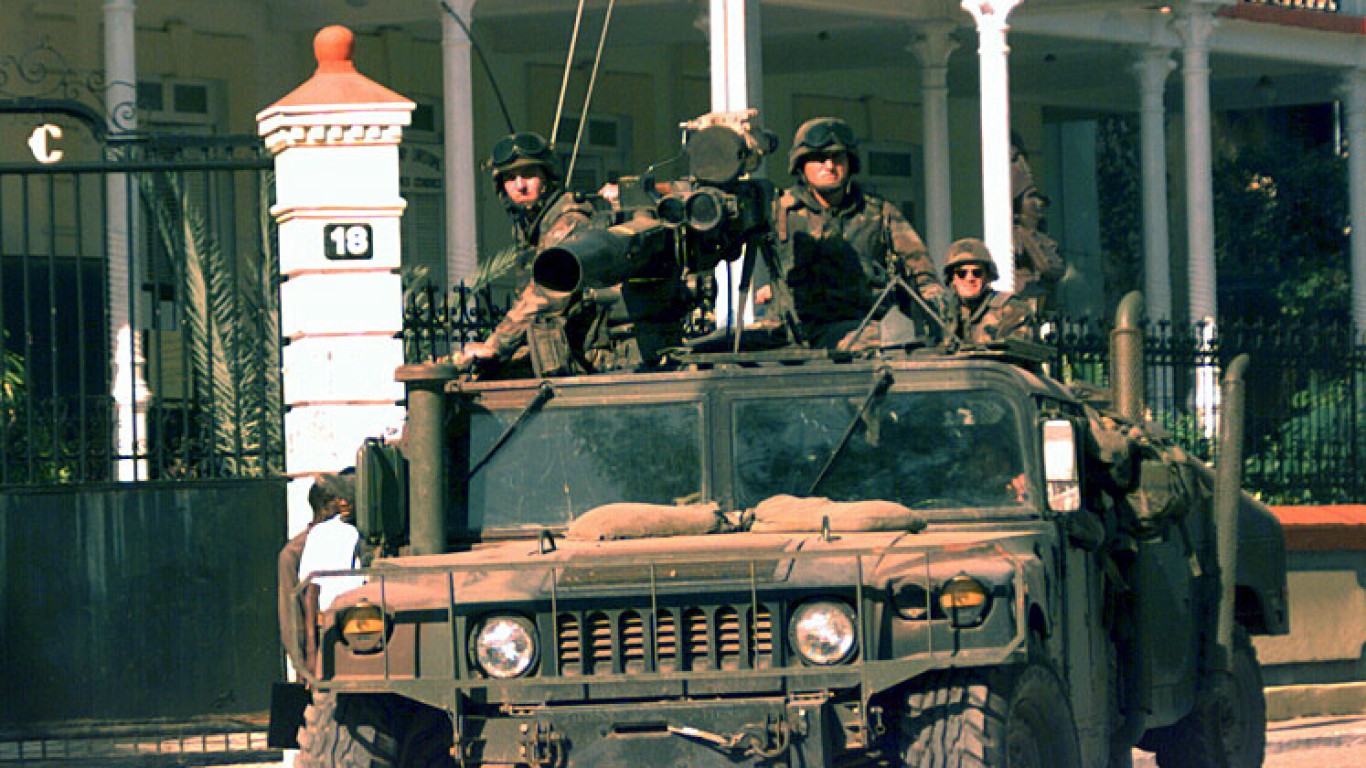
5. Anti-tank missiles
Tanks play a key role in Russia’s incursion of Ukraine. In response to this, the United States has pledged to provide Ukraine’s military with more than 6,000 TOW missiles. These missiles, also known as Tube-launched, Optically-tracked, Wire-guided weapons, are often used specifically for anti-tank operations. Weighing approximately 50 pounds, these missiles can be mounted on various military vehicles, Humvees included.
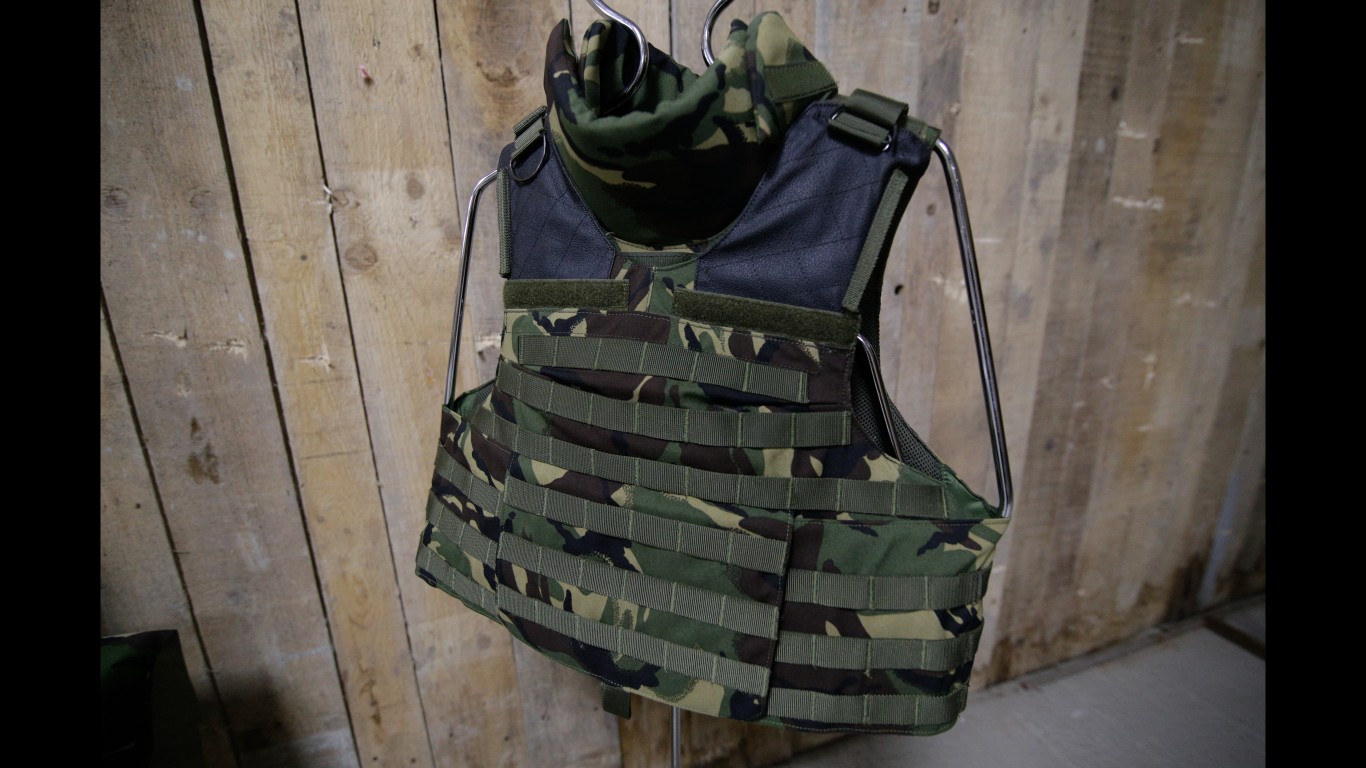
6. Body armor and other protective equipment
The U.S. has pledged to enhance the safety of Ukrainian combatants by dispatching more than 100,000 units of helmets and body armor. In response to Moscow’s threats concerning the possible deployment of tactical nuclear weaponry, the U.S. is also providing equipment designed to protect against nuclear, chemical, biological, and radiological weapons.
[in-text-ad]
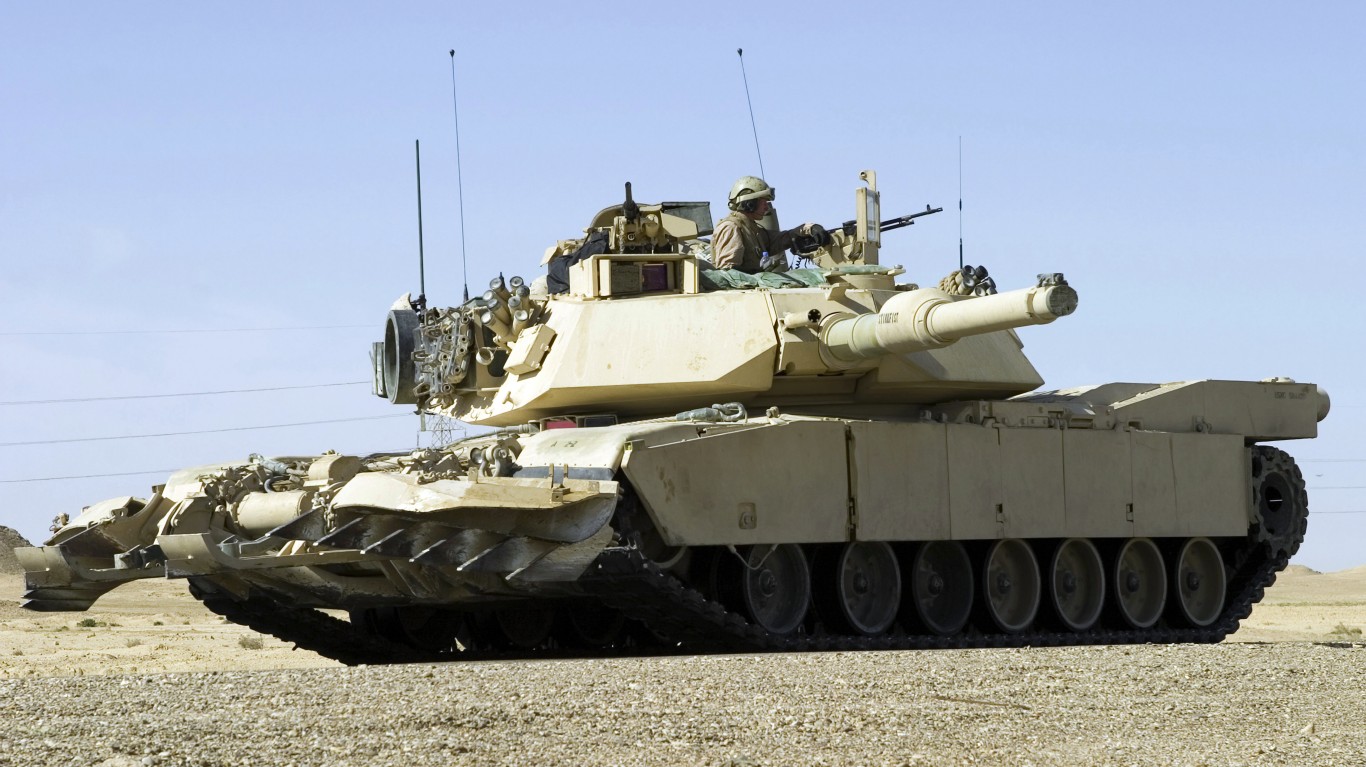
7. Combat vehicles
The United States is providing Ukraine with a variety of military vehicles to facilitate the transportation of troops and equipment across combat zones. The assortment includes 500 Mine Resistant Ambush Protected Vehicles, complete with mine rollers to assist in minefield clearance. The U.S. is also contributing 300 M113 armored personnel carriers and more than 2,000 armored high mobility multipurpose wheeled vehicles, also referred to as Humvees. The U.S. is also sending 31 Abrams tanks and 45 T-72B tanks as well as 120mm and 105mm tank ammunition.
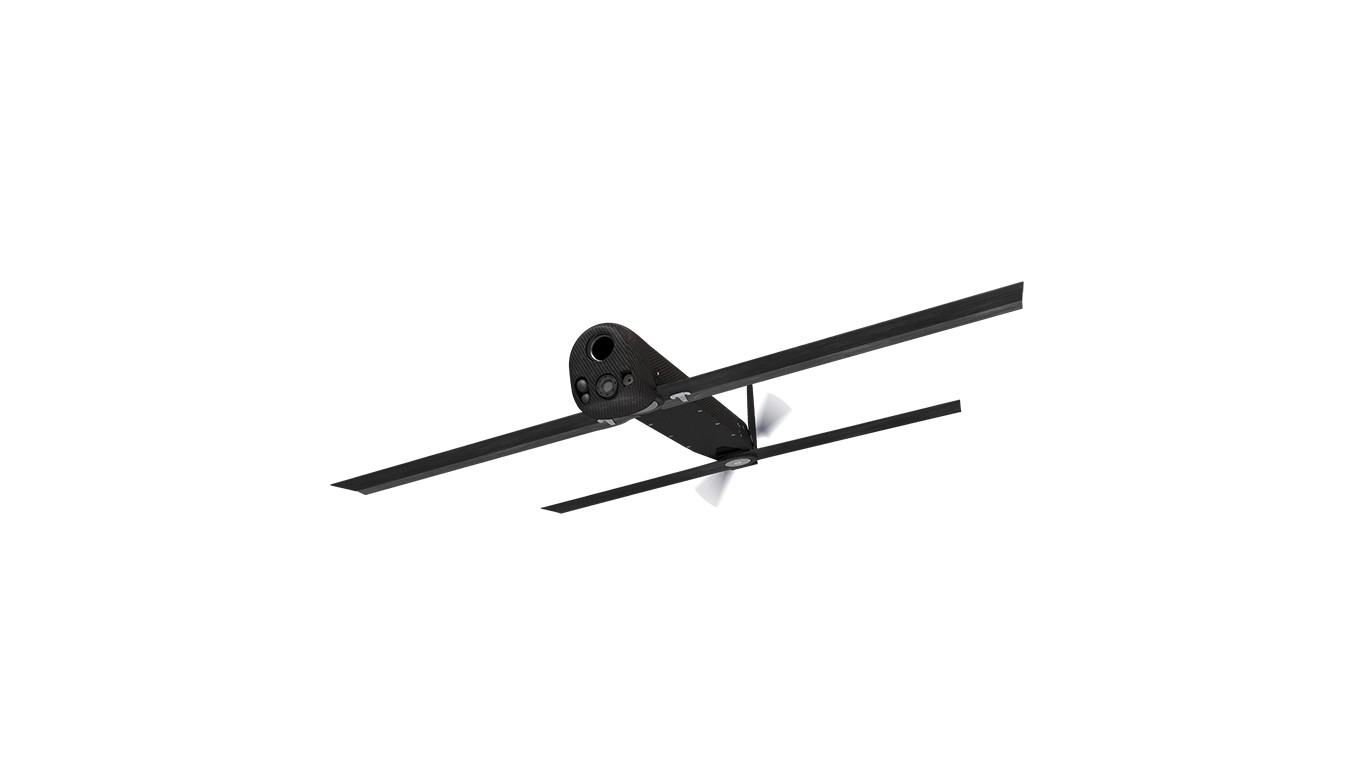
8. Unmanned aerial drones
The U.S. is set to provide Ukraine with an unspecified quantity of Switchblade Tactical Unmanned Aerial Systems. These drones, produced by AeroVironment, function as airborne robots equipped with a camera, GPS technology, and explosives. Like numerous other weapons the U.S. sends Ukraine, the Switchblade boasts high portability, with some models being compact and lightweight enough to be carried in a backpack for swift deployment.
The DOD has also committed to supplying several Phoenix Ghost Tactical Unmanned Aerial Systems, which resemble the Switchblade drones, but are freshly designed for situations akin to those encountered by Ukrainians in combat. The U.S. is also slated to deliver an undefined number of Puma and ScanEagle drones, which are principally used for surveillance and reconnaissance. Additional drones, including the CyberLux K8, Altius-600, Jump-20, Hornet, and Penguin, are also in the lineup for delivery in an unspecified quantity.

9. Electronic jamming technology
The United States is dispatching electronic disruption apparatus to Ukraine. This equipment is designed to identify and pinpoint Russian communication signals and has the ability to emit signals that can interfere with, and mislead, Russian communications and radar systems.
[in-text-ad-2]
10. Explosives
The M18A1 Claymores that Ukraine is receiving from the U.S. are command-activated mines for targeting personnel and certain vehicles. When activated, these mines discharge roughly 700 steel projectiles in a set direction, similar to a shotgun’s blast, covering an effective distance of around 100 meters. Moreover, the U.S. is providing Ukraine with C-4 explosives and demolition ammunition, designed to remove impediments and obstructions on the battlefield.

11. Helicopters
The Mi-17s, medium-sized helicopters intended for transport roles, have the capacity to move both personnel and goods. Three crew members are needed to operate them, with the ability to accommodate up to two dozen paratroopers. These helicopters also have the versatility to transform into a gunship when equipped with weapons.
The U.S. is sending a fleet of 20 Mi-17s to Ukraine, despite the fact that their origin traces back to a Russian state-owned arms manufacturer. The Pentagon initially acquired these helicopters for deployment in Afghanistan due to their affordability and existing familiarity among Afghan pilots. These helicopters are also part of Russia’s military arsenal, where they are referred to as the Mi-8M.
[in-text-ad]
12. High Mobility Artillery Rocket System
The U.S. is equipping Ukraine with 38 units of a rocket launching mechanism known as the High Mobility Artillery Rocket System, or HIMARS. This system is notable for its mobility, as it is mounted on a wheeled chassis, and for its versatility, as it can deploy two distinct types of rockets with a reach exceeding 70 kilometers.
13. Howitzers
The U.S. is providing Ukraine with a variety of military equipment, including high-tech systems such as drones and guided missiles. However, one piece of equipment — the 155mm Howitzer field artillery gun — uses technology that has not changed significantly in over a hundred years. Despite this, the Howitzer, which is essentially an artillery cannon, can often use GPS-guided payloads. The operation of these weapons demands a small crew and they can strike targets up to 15 miles away.
The U.S.’s commitment to Ukraine includes the provision of 198 Howitzers along with over 2 million 155mm artillery rounds and 7,000 precision-guided artillery rounds. This commitment also encompasses 72 105mm Howitzers and in excess of half a million 105mm artillery rounds.

14. Medical supplies
The U.S. has committed to providing Ukraine with essential medical resources such as first aid kits, bandages, and monitoring devices. This support, specifically intended to preserve the lives of Ukrainians, includes not only American contributions, but also those from other nations, organizations, and private citizens.
[in-text-ad-2]
15. Mortars
The United States armed forces employ a variety of mortar systems, available in both mounted and dismounted versions, typically for providing indirect fire backing in battle scenarios. The recent commitment from the U.S. includes provisioning Ukraine with mortar systems, including: 47 systems of 120mm, 10 systems of 82mm, 67 systems of 81mm, and 58 systems of 60mm. Alongside these systems, a total of 400,000 mortar rounds will also be dispatched.
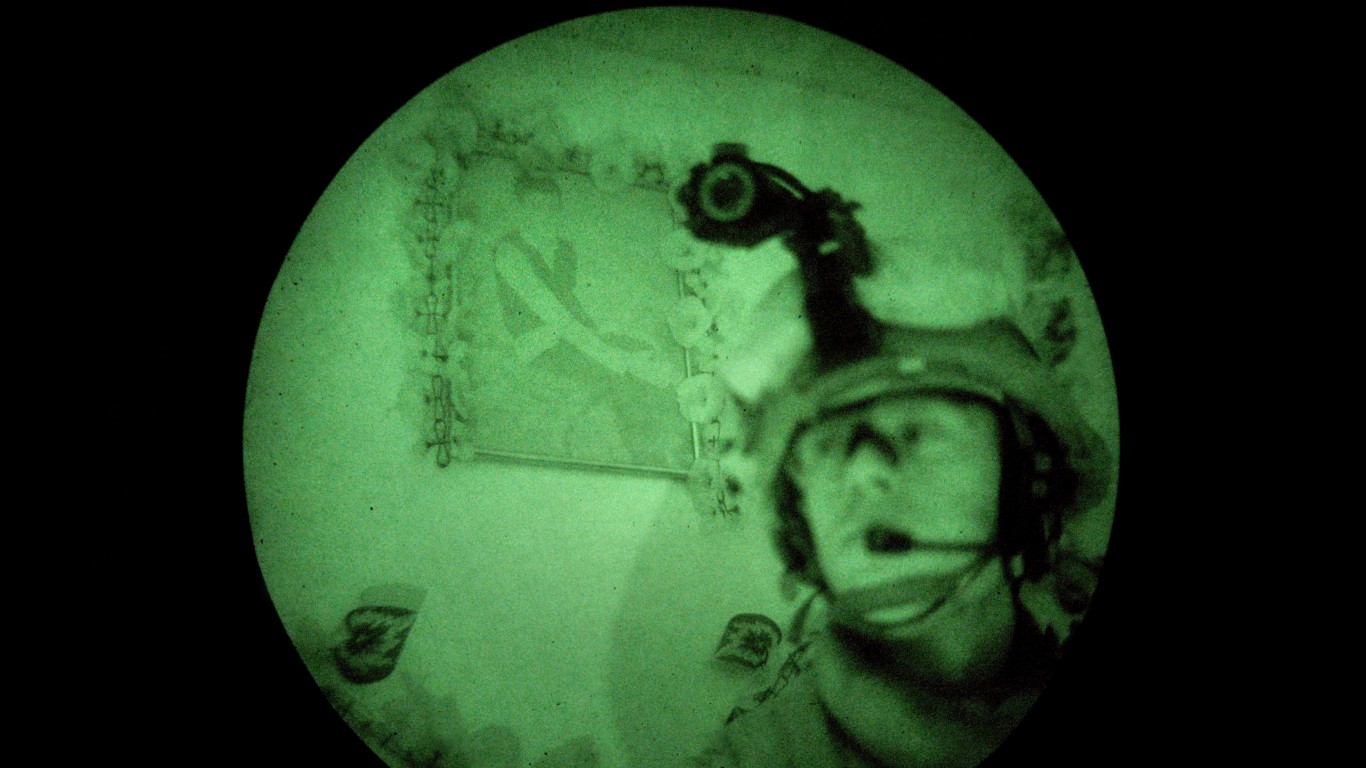
16. Optics and night vision technology
The U.S. is supplying Ukrainian combatants with several thousands of state-of-the-art equipment, including night vision gadgets, surveillance apparatus, thermal imaging systems, optics, and laser rangefinders, in addition to sophisticated weaponry and communication networks. Such resources can significantly enhance the abilities of individual soldiers, especially in terms of data collection and combat proficiency.
[in-text-ad]
17. Radar
Radar technology plays a pivotal role in executing terrestrial, maritime, and aerial military actions. The United States has thus far committed to providing more than 70 counter-artillery and counter-mortar radar systems, in addition to 20 multi-mission radars. The U.S. has also agreed to supply 21 radars specifically designed for air surveillance and a pair of radars for unmanned aircraft systems.
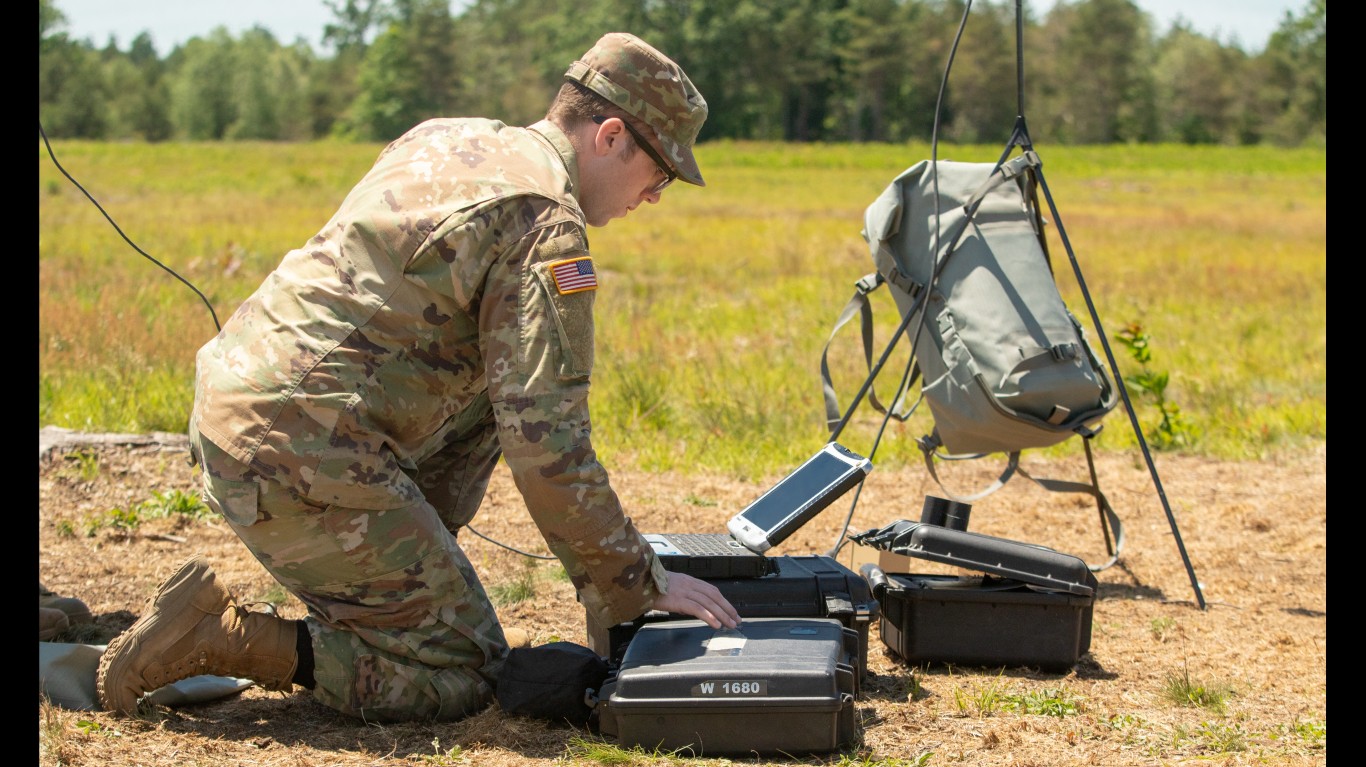
18. Laser-guided rocket systems
The United States has committed to supplying Ukraine with an unspecified amount of laser-guided missile systems for an indefinite period. The commitment includes 10 mobile counter-Unmanned Aerial Systems (c-UAS) that are laser guided, along with an assortment of precision-guided missiles. Thanks to precision guidance technology, these missiles can accurately strike lightly armored targets in confined spaces.
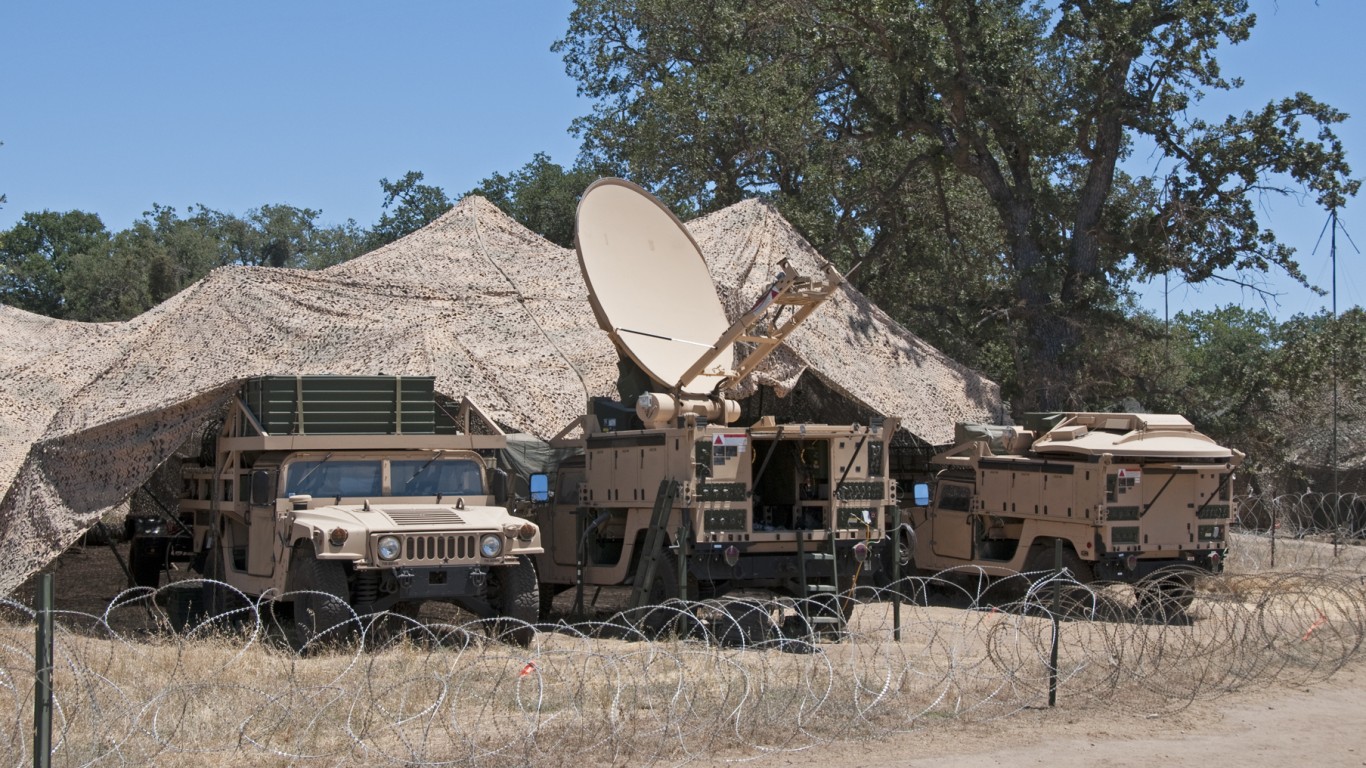
19. Satellite and communication technology
The U.S. has spearheaded various intelligence sharing programs to support Ukraine, with commercial satellite imagery a key component. Thanks to collaborations with more than 100 companies such as Maxar, BlackSky, and Planet, a multitude of commercial satellites are supplying Ukraine and NATO countries with visuals of Russian military maneuvers and tactical formations.
[in-text-ad-2]
20. Ships
The U.S. is also providing Ukraine with naval armaments, including an unknown quantity of unmanned coastal defense vessels and 62 patrol boats designed for use in coastal and riverine environments.
21. Small arms
The U.S. is furnishing Ukrainian combatants with a variety of small arms, including rifles, pistols, shotguns, machine guns, and grenade launchers. Furthermore, the support package contains over 300 million ammunition units.
[in-text-ad]
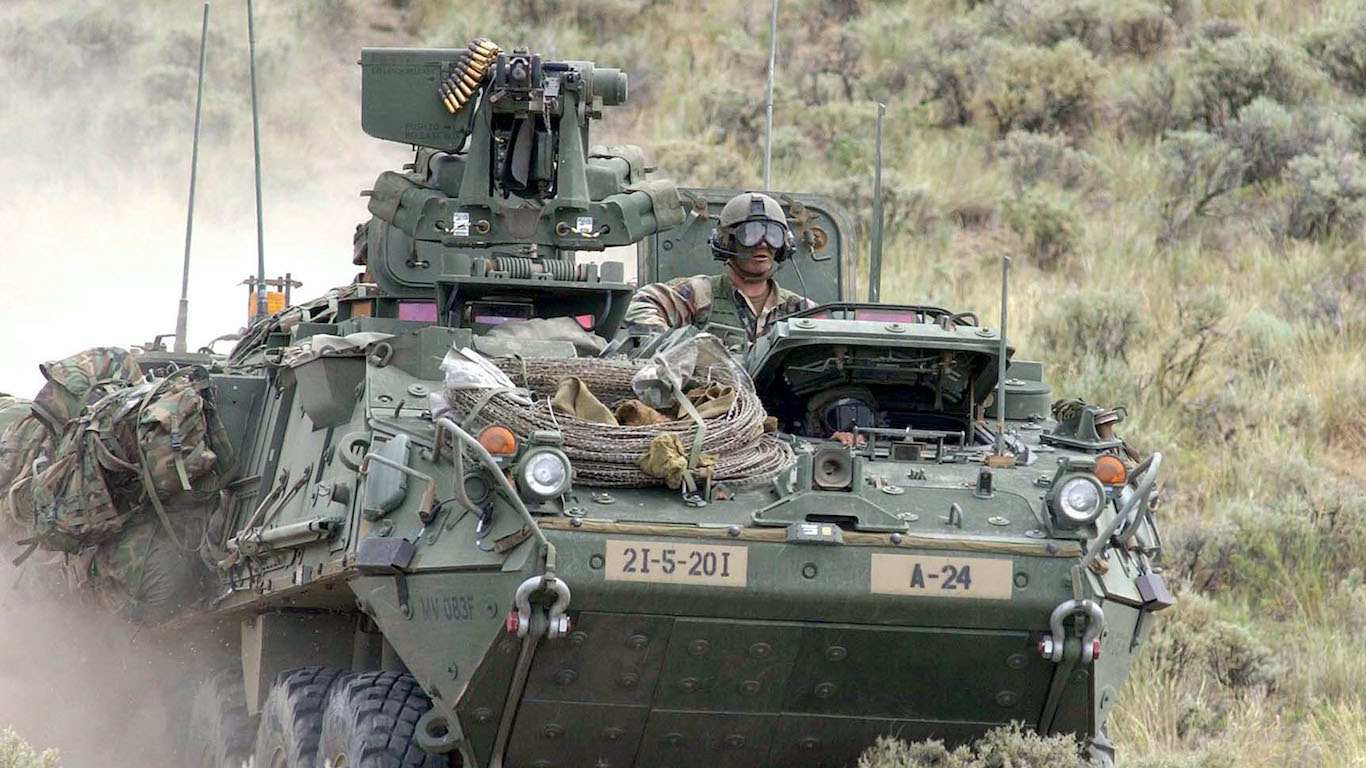
22. Trucks and other utility vehicles
The United States has pledged to provide Ukraine with an assortment of land vehicles to enhance combat capabilities and cater to specific operational needs. The American contribution encompasses 600 tactical vehicles for hauling weaponry and supplies, 131 specialized vehicles for equipment retrieval, 200 fortified medical vehicles, and 192 vehicles and trailers intended for moving heavy equipment.
Want retirement to come a few years earlier than you’d planned? Or are you ready to retire now, but want an extra set of eyes on your finances?
Now you can speak with up to 3 financial experts in your area for FREE. By simply clicking here you can begin to match with financial professionals who can help you build your plan to retire early. And the best part? The first conversation with them is free.
Click here to match with up to 3 financial pros who would be excited to help you make financial decisions.
Have questions about retirement or personal finance? Email us at [email protected]!
By emailing your questions to 24/7 Wall St., you agree to have them published anonymously on a673b.bigscoots-temp.com.
By submitting your story, you understand and agree that we may use your story, or versions of it, in all media and platforms, including via third parties.
Thank you for reading! Have some feedback for us?
Contact the 24/7 Wall St. editorial team.